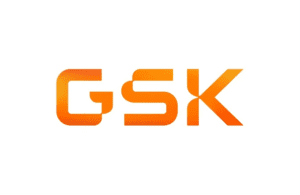 GSK (LSE/NYSE:GSK) has shared positive headline results from a planned interim analysis of Part 1 of a Phase 3 study of adults with primary advanced or recurrent endometrial cancer. In the study, patients in the Jemperli (dostarlimab) arm also received chemotherapy (carboplatin-paclitaxel) followed by Jemperli alone.
GSK (LSE/NYSE:GSK) has shared positive headline results from a planned interim analysis of Part 1 of a Phase 3 study of adults with primary advanced or recurrent endometrial cancer. In the study, patients in the Jemperli (dostarlimab) arm also received chemotherapy (carboplatin-paclitaxel) followed by Jemperli alone.
The study tested the treatment regimen against chemotherapy with a placebo followed by a placebo in adult patients with primary advanced or recurrent endometrial cancer.
The RUBY study met its primary endpoint of investigator-assessed progression-free survival (PFS).
The overall population receiving Jemperli plus chemotherapy had statistically significant and clinically meaningful benefit. The same holds for patients with prespecified mismatch repair deficient (dMMR)/microsatellite instability-high (MSI-H).
While GSK acknowledges that the overall survival data remain inconclusive presently, the study found increased overall survival data in the dMMR/MSI-H and MMRp/MSS subgroups.
“Patients with primary advanced or recurrent endometrial cancer have limited treatment options. Long-term outcomes remain poor, and new treatment options are urgently needed to evolve the current standard of care, which is platinum-based chemotherapy,” said Hesham Abdullah, senior vice president, global head of oncology development and GSK. “Based on these positive headline results from the RUBY phase III trial, GSK intends to seek regulatory approvals for a potential new indication for dostarlimab in the treatment of primary advanced or recurrent endometrial cancer,” Abdullah continued in a news release.
Discovered by AnaptysBio, dostarlimab won FDA approval in April 2021 for women with recurrent or advanced dMMR endometrial cancer in April 2021. The drug later won FDA accelerated approval for adults with mismatch repair-deficient (dMMR) recurrent or advanced solid tumors.
GSK notes that the safety profile of dostarlimab in the RUBY study was consistent with similar trials. Patients receiving dostarlimab and chemotherapy most commonly complained of nausea, alopecia, fatigue, peripheral neuropathy, anemia, arthralgia, constipation and diarrhea.
GSK shares were mostly flat, hovering around $35.30 in afternoon trading.
Filed Under: Oncology





Tell Us What You Think!
You must be logged in to post a comment.